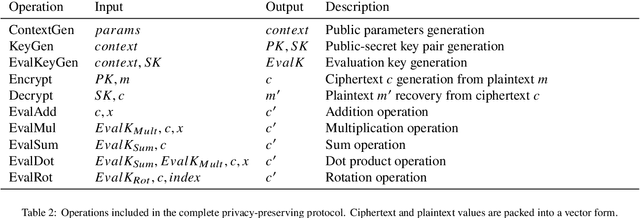Giorgos Stamatelatos
Predicting Early Dropouts of an Active and Healthy Ageing App
Aug 01, 2023Abstract:In this work, we present a machine learning approach for predicting early dropouts of an active and healthy ageing app. The presented algorithms have been submitted to the IFMBE Scientific Challenge 2022, part of IUPESM WC 2022. We have processed the given database and generated seven datasets. We used pre-processing techniques to construct classification models that predict the adherence of users using dynamic and static features. We submitted 11 official runs and our results show that machine learning algorithms can provide high-quality adherence predictions. Based on the results, the dynamic features positively influence a model's classification performance. Due to the imbalanced nature of the dataset, we employed oversampling methods such as SMOTE and ADASYN to improve the classification performance. The oversampling approaches led to a remarkable improvement of 10\%. Our methods won first place in the IFMBE Scientific Challenge 2022.
FedPOIRec: Privacy Preserving Federated POI Recommendation with Social Influence
Dec 21, 2021



Abstract:With the growing number of Location-Based Social Networks, privacy preserving location prediction has become a primary task for helping users discover new points-of-interest (POIs). Traditional systems consider a centralized approach that requires the transmission and collection of users' private data. In this work, we present FedPOIRec, a privacy preserving federated learning approach enhanced with features from users' social circles for top-$N$ POI recommendations. First, the FedPOIRec framework is built on the principle that local data never leave the owner's device, while the local updates are blindly aggregated by a parameter server. Second, the local recommenders get personalized by allowing users to exchange their learned parameters, enabling knowledge transfer among friends. To this end, we propose a privacy preserving protocol for integrating the preferences of a user's friends after the federated computation, by exploiting the properties of the CKKS fully homomorphic encryption scheme. To evaluate FedPOIRec, we apply our approach into five real-world datasets using two recommendation models. Extensive experiments demonstrate that FedPOIRec achieves comparable recommendation quality to centralized approaches, while the social integration protocol incurs low computation and communication overhead on the user side.
 Add to Chrome
Add to Chrome Add to Firefox
Add to Firefox Add to Edge
Add to Edge